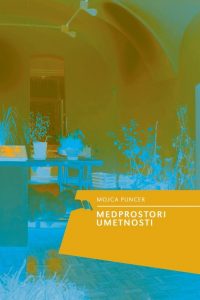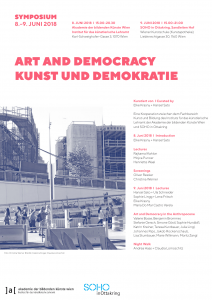Nove objave / New Publications
Mojca Puncer in Maja Murnik sta nedavno objavili poglavji v knjigi / Mojca Puncer and Maja Murnik recently published the chapters in the book:
The European Avant-Garde – A Hundred Years Later (ed. Polona Tratnik), Leiden, Boston: Brill, 2024.
https://brill.com/display/title/63237
Mojca Puncer:
Chapter 10: “The Avant-Garde Politics of Time: the Case of Post-Gravity Art”, pp. 251–273.
In: The European Avant-Garde – A Hundred Years Later
DOI: https://doi.org/10.1163/9789004685871_012
Abstract
The author seeks an answer to the question of whether the 50-year post-gravity theatre project Noordung::1995–2045 by the Slovenian theatre director Dragan Živadinov (1960–) and his collaborators, visual artists Dunja Zupančič and Miha Turšič, can be described as a particular avant-garde politics of time. Using the concept of the »politics of time,« which refers to the temporal structure of social practices in their pursuit of change (Osborne), we discuss the temporality of the avant-garde in accordance with ruptural time (Benjaminʼs »now-time«) in its tension with the historical continuity of time. The text outlines the ways in which the consideration of time is an essential part of Živadinov’s work, particularly in his attention to the legacy of the so-called »historical avant-garde« in relation to utopianism (especially in Suprematism and Constructivism) and the pursuit of the future utopian moment of the »absolute now.« To this end, we attempt to demonstrate Živadinov’s affinities with both a particular Marxist, i.e. Benjaminian, and Nietzsche-Deleuzian (post-structuralist) concept of time. Special attention is given to the way in which a close examination of Živadinov’s work not only as theatrical but also as conceptual, trans-artistic, techno-scientific, socio-political, and philosophical, is essential to understanding some of his key arguments.
Maja Murnik:
Chapter 11 “Bodies-In-Freedom: from Futurist Aerial Theatre to Space Art”, pp. 274–289.
In: The European Avant-Garde – A Hundred Years Later
DOI: https://doi.org/10.1163/9789004685871_013
Abstract
Firstly, the chapter will address the conceptual legacy of Italian Futurist teatro aereo (or aerial theatre) where the predecessors of art striving to literally take its feet off the ground can be found. By combining several perspectives from philosophy (Merleau-Ponty, Virilio), art history and performance studies, and by including art examples as well, the chapter will afterwards discuss several issues: (1) the problem of gravity; (2) the extensions of body and the relating issue of technology (foregrounding other forms of embodiment which extend body’s area of sensitivity); (3) the aspects of scientific abstraction (pointing out that our understanding of outer space is based on large amounts of scientific data, transmitted and translated into visualizations, comprehensible to human terrestrial experience, since outer space is abstract, constructed space (a virtual space), inaccessible to our naked-eye perception); (4) social, political and artistic aspects of liberation from gravity (e.g., autonomous astronauts initiative, culturalization of space initiative).



